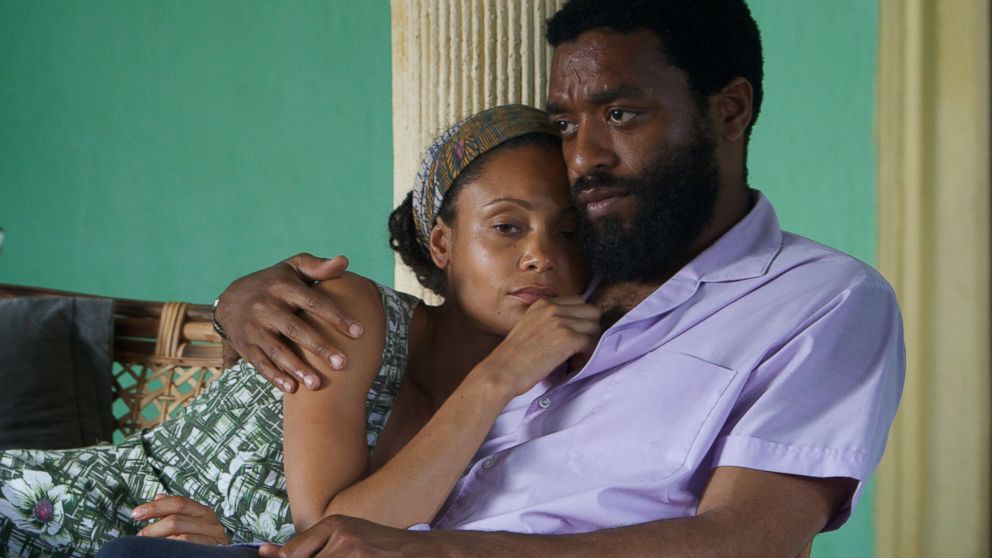Nigeria's Nollywood Reaches Mainstream
Nigerian romance drama "Half of a Yellow Sun" marks milestone in film industry.

May 9, 2014— -- Nigeria's bustling film industry is about to take a giant leap forward with the upcoming U.S. release of "Half of a Yellow Sun."
Starring Oscar nominee Chiwetel Ejiofor ("12 Years a Slave"), who was born in London to Nigerian parents, and acclaimed actress Thandie Newton, the film is Nigeria's most expensive movie to date with a budget of $10 million.
"Eighty percent of the money came from Nigeria," Biyi Bandele, the Nigerian-born director of "Yellow Sun," told ABC News. "That was a first. That never happened before. It's the biggest movie ever made in Nigeria."
Chiwetel Ejiofor Says He Takes Longer than Most Women to Prep for Red Carpet
The film marks a milestone for Nigeria's film industry, which exploded in the '90s with the growth of home video and is now the second-largest employer in the country. Today, Nigeria churns out some 50 movies per week, most of them straight-to-video releases, making it the second-largest producer of films in the world, after India. Hence the nickname, Nollywood.
"The future of Nigerian film is very rosy," Bandele said. "In the next decade, the world is going to be hearing a lot from Nigerian filmmakers, young filmmakers who grew up within the Nollywood tradition and then went to film schools. I'm really excited about the prospect of Nigerian cinema in the next decade, thanks to Nollywood."
"Yellow Sun" is a love story set against the backdrop of Nigeria's civil war, the Biafran war that divided the country between 1967 and 1970. It's based on Nigerian author Chimamanda Ngozi Adichie's bestselling novel of the same name. Bandele, a UK-based playwright making his directorial debut, shot "Yellow Sun" in the southeastern part of the country, where a lot of events in the film actually took place.
After making its premiere last fall at Toronto's International Film Festival, the film was released in the UK last month and was among the Top 10 over Easter weekend. The film will premiere in New York City tonight at the New York African Film Festival at Film Society of Lincoln Center, ahead of its limited U.S. release May 16.
But despite a premiere date of April 25 in Nigeria, it has yet to screen in a single theater in the country.
First Look at Thandie Newton's Baby Boy
"We have effectively been banned by the censorship board," Bandele said, adding that the head of the board saw the film in Toronto and loved it. "I think it's political, but I'm not sure what politics are at play. ...I hope we get to the heart of it eventually."
The film's release comes at a time when Africa's most populous nation is threatened by an Islamic uprising in the northeast, jeopardizing unity between the mainly Muslim north and predominantly Christian south.
It also comes amid an international outcry over the kidnapping of 276 girls, who were taken from their school by extremist militants from the Islamist terror group Boko Haram, which translates to "western education is sinful." The group has since threatened to sell the girls into slavery.
Since news broke of the kidnappings, the film's star, Newton, who was born to a Zimbabwean mother and a British father, has posted numerous images along with the popular hashtag "#BringBackOurGirls" on Twitter.
Obama Calls Kidnapping of Nigerian Girls 'Heartbreaking' and 'Outrageous'
"Yellow Sun" author Adichie called the censor's actions a "knee-jerk political response" to recent events out of concern that it "might incite" more violence in the country, but said a ban is not the answer.




